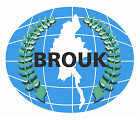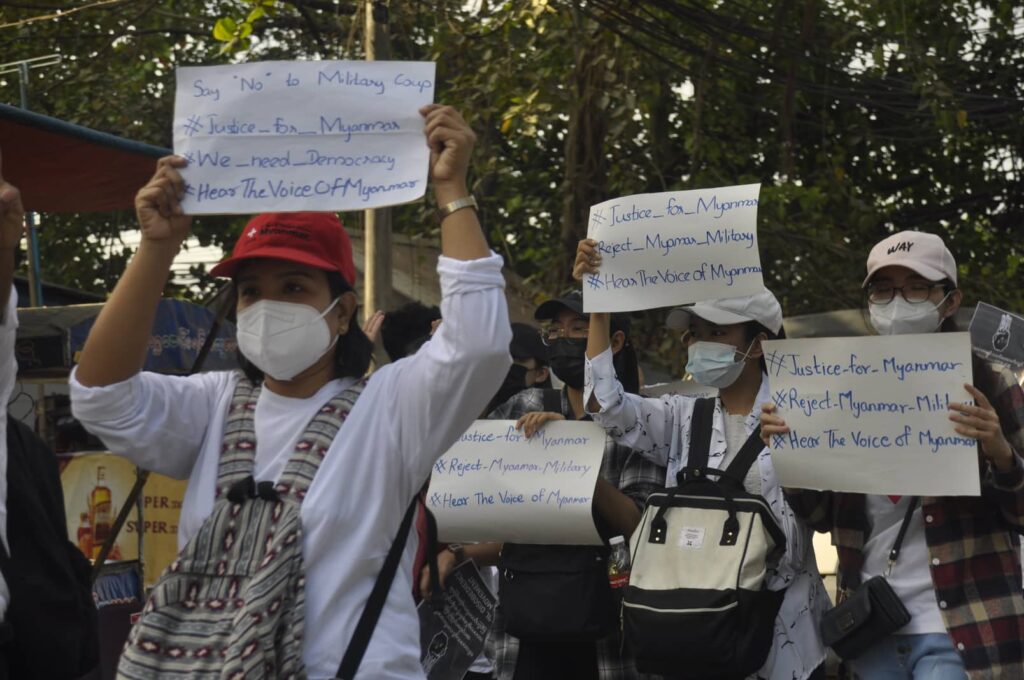Media Release from Burmese Rohingya Organisation UK
For Immediate Release: 16th July 2021
The Burmese Rohingya Organisation UK (BROUK) today welcomes the report The UK government’s response to the Myanmar crisis published by the Foreign Affairs Committee in the British Parliament. We join with the committee’s calls for justice and accountability, a global arms embargo, sanctions on military linked businesses, and support for grass roots organisations inside Myanmar providing humanitarian support and collecting evidence of atrocities.
“The Rohingya, as genocide survivors, are calling for justice, not only for Rohingya but for all people of Myanmar. We welcome this very strong report which recognises the need for the British government to do more on justice and accountability, and to tackle the impunity of the Tatmadaw”, said Tun Khin, President of the Burmese Rohingya Organisation UK (BROUK). “Dominic Raab is refusing to join the genocide case at the International Court of Justice, ignoring calls from Rohingya, from opposition parties, more than 100 parliamentarians, and from human rights organisations. He must now listen to the Foreign Affairs Committee and announce the UK will join the case.”
The Rohingya people inside Myanmar are still facing genocide, and over a million genocide survivors in Bangladesh have demanded justice for the atrocities they have suffered. The Foreign Affairs Committee, made up of eleven cross-party MPs and tasked with scrutinising the work of the Foreign, Development and Commonwealth Office, recognises the role impunity played leading up to the coup. They write:
“At the heart of this coup is the belief in impunity. The generals leading the junta believe they can act without consequence. It is vital that the international community demonstrates that this is not the case. Not only is it important that those responsible for crimes against civilians in Myanmar are held accountable, but also that others who would commit similar crimes in future can see that violations of international law have real consequences. The Government should not allow the military leaders to operate with impunity, and without the prospect of facing justice.” (FAC, paragraph 39)
To this end, the committee recommends the British government to intervene in the ICJ Rohingya genocide case, and to support a referral of Myanmar to the International Criminal Court, ICC, calls that BROUK also made in our written evidence to the committee.
Furthermore, the committee calls for the British Government to work for a global arms embargo through the UN Security Council, and if that should fail, to work with likeminded countries to impose as many individual arms embargoes as possible. They call for the government to impose sanctions on businesses linked to the junta at a much faster pace, and to encourage other countries to introduce economic sanctions. BROUK supports and welcomes these calls from the committee.
The committee also recognises the need for the British government to give more financial support to grass roots organisations in Myanmar, working with humanitarian assistance after the coup and with collecting evidence of atrocities committed by the military junta. They write:
“Aid spending should be funnelled to civil society and grassroots organisations who are doing invaluable on-the-ground work to support those suffering under the junta. Organisations providing tailored support to different ethnic groups should also be specifically targeted for assistance.” (FAC, paragraph 38)
“The people of Myanmar are facing multiple disasters, with genocide, crimes against humanity and now the Covid-19 pandemic ripping through the country, made so much worse by the disregard for human life by the military junta. The people of Myanmar need urgent support from the international community. Furthermore, the aid for the Rohingya refugees in Bangladesh needs to be increased and their living conditions improved, as their prospects of returning to Myanmar are non-existent under the military dictatorship,” said Tun Khin. “The UK government has recently shamefully slashed its support for Rohingya refugees in Bangladesh by 42%.”
The Foreign Affairs Committee points out that it is important that the British government does not do anything that can be seen as legitimising the military junta, writing:
“It is essential that the UK Government’s actions do not appear to legitimise the authority of the junta in any way. Any actions that do will be seized upon by the junta and used as propaganda. Engagement should be strictly limited to increasing diplomatic and economic pressure to reduce the violence the junta is committing against civilians.”(FAC, paragraph 15)
“Nearly six months after the coup, the people of Myanmar are still fighting this brutal military dictatorship. They need all the support they can get, and this report is incredibly important in helping to achieve that,” said Tun Khin.
The report The UK government’s response to the Myanmar Crisis can be found here: https://committees.parliament.uk/publications/6773/documents/72101/default/
BROUK’s full written evidence: https://committees.parliament.uk/writtenevidence/36282/html/
For more information, please contact Tun Khin on +44 (0)7888714866

